One of the core issues raised by delegate Le Thu Ha - National Assembly Delegation of Lao Cai province is the need to clearly define: What does this Law regulate, who does it serve and what role does it play in the overall national legal architecture on digital transformation. Delegate Le Thu Ha said that the current draft Law is too broad in scope, covering digital government, digital economy and digital society. Although this approach is comprehensive, it can easily lead to a situation of "overlapping laws" with other specialized laws such as the Data Law, the Electronic Transactions Law, and the Personal Data Protection Law.

Delegate Le Thu Ha - National Assembly Delegation of Lao Cai province speaks
To overcome this, delegates recommended clearly establishing the role of the Law on Digital Transformation as a "framework law, basic law", which means shaping the institutional structure, principles, rights and common responsibilities on digital transformation; connecting and leading specialized fields, creating consistency in the entire digital legal system. According to delegates, the scope of regulation should focus on the public sector and the political system (digital transformation in state administration, public service provision, interaction between the State and people and businesses). The digital economic and social sector should be encouraged to develop according to an open policy mechanism and gradually adjusted by other specialized laws.
Delegate Le Thu Ha proposed to amend the law to regulate digital transformation in the political system and the operations of state agencies. The State encourages organizations, businesses, and individuals to carry out digital transformation in production, business, and social life in accordance with legal regulations.
The lack of uniformity in terminology such as digital platform, digital environment, and digital human resources is causing confusion due to different interpretations in many laws mentioned by delegates. Delegate Le Thu Ha emphasized the need to standardize the concept of "Digital transformation is not just the digitization of data but the process of comprehensively restructuring the operations of agencies, organizations, businesses and individuals based on data and digital technology". If this definition is institutionalized in the draft, the Law will become a benchmark for unifying concepts for other legal documents.
Meanwhile, delegate Ha Hong Hanh - National Assembly Delegation of Khanh Hoa province also proposed to add an explanation for the phrase "open data platform" in Article 3 because this phrase has been mentioned in the draft Law.

Delegate Ha Hong Hanh (National Assembly Delegation of Khanh Hoa province) spoke
Regarding policy, delegates proposed adding a separate clause on specific mechanisms allowing: Hiring information technology services; Applying the public-private partnership (PPP) model; Deploying Sandbox (a policy testing mechanism in the digital technology field). In particular, establishing a National Digital Infrastructure Development Fund to support disadvantaged localities and narrow the digital gap between regions. Delegates emphasized that "this mechanism is expected to ensure financial feasibility and demonstrate inclusive and equitable development thinking in the digital space".
A new and core issue raised by delegate Le Thu Ha is digital power governance, "who is responsible when digital platforms manipulate data, algorithms create prejudice, or false information spreads?". Delegates proposed adding regulations on prohibited behaviors such as: taking advantage of digital platforms, algorithms, and artificial intelligence to manipulate data, discriminate, and cause false impacts on social perception; not complying with requests from competent authorities to remove violating content.
At the same time, regarding the Digital Platform, according to the delegate, it is also necessary to clearly define the responsibility for algorithmic transparency for large-scale platforms and the mechanism for providing data when legally requested. More importantly, it is necessary to supplement digital citizenship rights including the right to data protection, the right to access information, the right to participate and monitor digital government activities. Building people's trust in the digital space is the measure of success of national digital transformation.
Delegate Ha Hong Hanh raised the issue of cyber security in digital transformation, stating that when all data is processed online, cyber security is no longer a purely technical issue but a political, ideological, social issue and a matter of people's trust. The delegate proposed adding the concept of "cyber security in digital transformation", affirming that this concept does not overlap but complements the Law on Cyber Security.
Regarding personal data protection, delegates found that many people are still hesitant to use online public services because of concerns about information being leaked, exploited for commercial purposes or fraud. Therefore, according to delegates, it is necessary to clearly define the principle of personal data protection as protecting human rights in the digital space; supplement specific responsibilities of agencies, organizations and businesses when collecting, processing and sharing data; prescribe independent monitoring mechanisms, transparent information for people to check, request correction or deletion of data. In particular, there should be strong sanctions equivalent to international standards to strictly handle acts of buying, selling, leaking or illegally using personal data.

Delegate Phan Xuan Dung - National Assembly Delegation of Khanh Hoa province) spoke
Delegate Phan Xuan Dung - National Assembly Delegation of Khanh Hoa province highly appreciated Vietnam's progress in digital transformation, but expressed concern about the negative impacts that have not been thoroughly mentioned in the Draft Law. The delegate warned that when applying high-tech platforms, especially artificial intelligence (AI), it can create the phenomenon of "laziness in thinking". The delegate cited the fact that AI does many things for humans, from making songs, making movies about life, to doing assigned exercises, causing "good qualities of each person to easily disappear". At the same time, the delegate re-emphasized the issue of protecting personal data due to the high level of science and technology and the sophistication of hackers.
An important point proposed by delegate Le Thu Ha is to expand the scope of application to include Party agencies, the National Assembly, the Court, the State Audit and the Fatherland Front because "digital transformation is a process of transformation of the entire political system"; adding regulations on periodic reporting every two years for the National Assembly to monitor the implementation of national digital transformation goals.
Delegates affirmed that the Law on Digital Transformation is not only a law on technology, but also a law on institutional reform and the way the government operates and interacts with citizens in the digital age. A law that is "sufficiently comprehensive and feasible" is needed, with people at the center, data as a resource, technology as a tool and institutions as a driving force for development. Delegates suggested that the Drafting Committee accept the revised directions so that the Law truly becomes an institutional architecture for Vietnam's digital society./.
Source: https://bvhttdl.gov.vn/du-an-luat-chuyen-doi-so-bao-ve-quyen-cong-dan-so-trong-ky-nguyen-moi-20251111130331298.htm






![[Photo] The "scars" of Da Nang's mountains and forests after storms and floods](https://vphoto.vietnam.vn/thumb/1200x675/vietnam/resource/IMAGE/2025/11/13/1762996564834_sl8-jpg.webp)





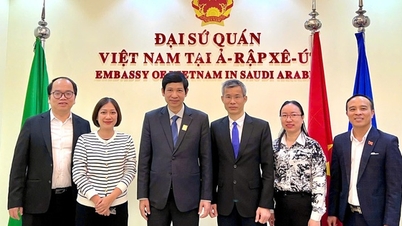
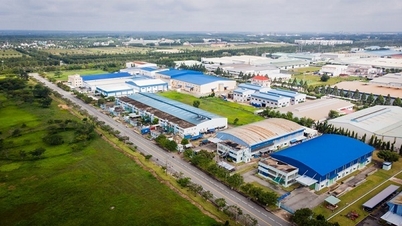

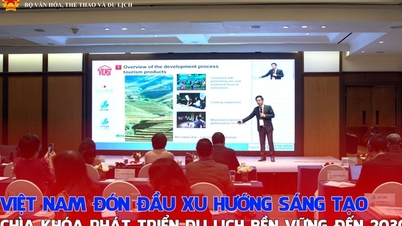




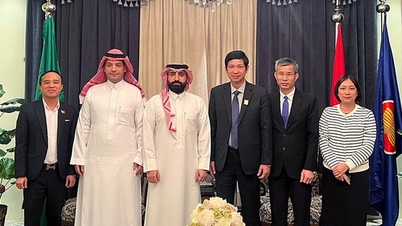



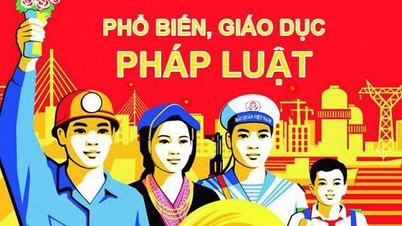
![[Photo] Prime Minister Pham Minh Chinh attends a conference to review one year of deploying forces to participate in protecting security and order at the grassroots level.](https://vphoto.vietnam.vn/thumb/1200x675/vietnam/resource/IMAGE/2025/11/12/1762957553775_dsc-2379-jpg.webp)


















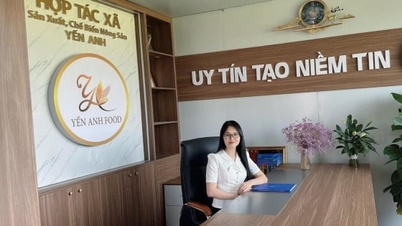


















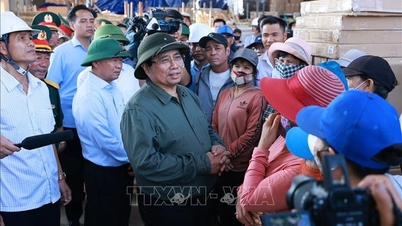








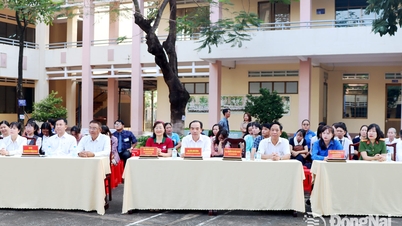



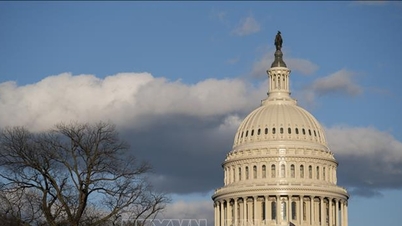
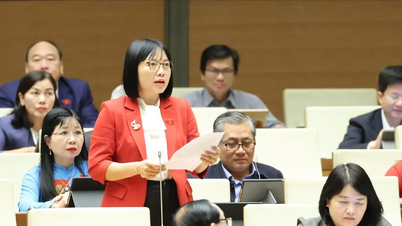
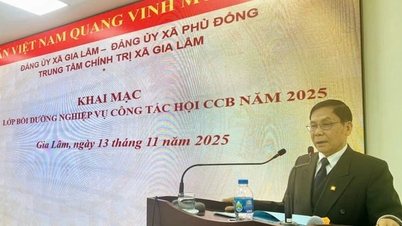
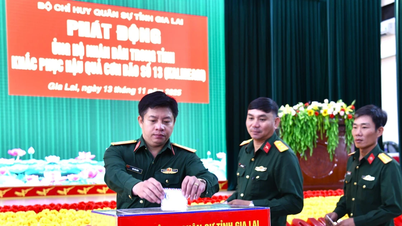





![Dong Nai OCOP transition: [Article 3] Linking tourism with OCOP product consumption](https://vphoto.vietnam.vn/thumb/402x226/vietnam/resource/IMAGE/2025/11/10/1762739199309_1324-2740-7_n-162543_981.jpeg)








Comment (0)